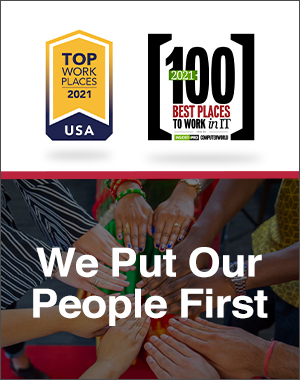
The healthcare industry continues to face staffing challenges. In an education session at the 2024 Axxess, Growth, Innovation and Leadership Experience (AGILE) , Fatou Ceesay, President and CEO of Cairasu Home Care, David Totaro, Chief Government Affairs Officer of BAYADA Home Health Care, Erika N. Salter, Managing Attorney of the Law Offices of Erika N. Salter, P.C., and Bob Markette, Counsel at Hall Render, discussed the role immigration plays in addressing staffing shortages and the need for policy reform to better align immigration policies with labor market needs.
Using Immigration as a Staffing Shortage Solution
Immigration can be a viable solution to the ongoing staffing shortage in the industry.
Ceesay explained that her organization dealt with their staffing shortage by providing in-house training for Certified Nursing Assistants (CNAs) and sourcing an immigrant workforce from outside the country.
She also emphasized the need for the healthcare industry to attract more workers.
“The staffing crisis is very real and it’s only going to get worse,” said Ceesay. “One of the things we’re seeing is that people are leaving the workforce, not because they’re retiring, but because they’re not attracted to the industry.”
Salter explained the process organizations must follow to hire immigrant workers.
“When you hire someone, you must make sure they have a valid work authorization,” said Salter. Employers could face fines if they fail to check employment eligibility.
People can receive a temporary non-immigrant visa. “That’s a visa issued by the federal government for a person to come into the country and work for a certain period of time, usually not to exceed three to five years, and they can renew that visa,” said Salter.
Markette addressed the legal ramifications of failing to meet care requirements due to staffing shortages.
“We could lose our certification, we could lose our license, we could get sued for significant damages because a patient gets harmed,” said Markette.
He emphasized that organizations need to understand the operational, compliance, legal and regulatory issues they face to avoid penalties and potential lawsuits.
Support for Immigrant Workers
The panelists urged that employers provide resources and support to help immigrant workers navigate the complexities of living and working in a new country.
Ceesay called for support and resources, including language training and mentoring, to help immigrant workers succeed.
Totaro highlighted the importance of creating a strong company culture that values and advocates for its employees, regardless of their country of origin.
“I think it’s about time for the government and its systems to recognize the need to shift towards bringing in more immigrant workers, especially for our industry,” expressed Ceesay.
Using Advocacy and Policy Reform to Address Staffing Shortages
The panelists explained that the government and legislators should be educated about the healthcare industry’s challenges and the potential of immigrant workers.
“We need to advocate for our folks,” said Totaro. “We need to take the time to go and sit down with legislators and explain what we do.”
Totaro also explained the low healthcare reimbursement rates. He mentioned that many states haven’t seen rate increases for decades.
“We [the healthcare industry] are not funded well and haven’t been for decades,” said Totaro. “Delaware, for example, just got a recent rate increase, but the last time they had an increase was in 2005.”
With more than 350 attendees, more than 50 sponsors and countless connections made, AGILE was a massive success for everyone. Check out the recap video and mark your calendar for AGILE 2025, May 5-7 in Dallas.
